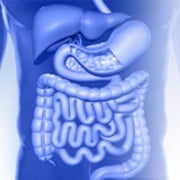Asthma Researchers Concur – Early Life Infections Increase Autoimmune Risk
 September 30, 2015 – Findings from a longitudinal human study by Arrieta et al, published in Science Traditional Medicine suggest that infants at risk of asthma have transient gut microbial dysbiosis during the first 100 days of life. They found that certain bacterial genera were decreased in these children. Moreover, adding these bacteria back to germ-free mice decreased airway inflammation, suggesting a potential causative role of the loss of these microbes. They suggest a window where microbe-based diagnostics and therapeutics may be useful to prevent the development of asthma in high-risk individuals. Changes in the gut microbiota have been implicated in the development of asthma in animal models; however, it has remained unclear whether these findings hold true in humans until now.
September 30, 2015 – Findings from a longitudinal human study by Arrieta et al, published in Science Traditional Medicine suggest that infants at risk of asthma have transient gut microbial dysbiosis during the first 100 days of life. They found that certain bacterial genera were decreased in these children. Moreover, adding these bacteria back to germ-free mice decreased airway inflammation, suggesting a potential causative role of the loss of these microbes. They suggest a window where microbe-based diagnostics and therapeutics may be useful to prevent the development of asthma in high-risk individuals. Changes in the gut microbiota have been implicated in the development of asthma in animal models; however, it has remained unclear whether these findings hold true in humans until now.
Implications of changes in intestinal microbiome shared by celiac disease experts:
- Early Life Infections Increase Risk of Developing Celiac Disease
- Epidemic of Autoimmune Diseases Blamed on Shift in Microbiome
- What’s New in Gastroenterology: Microbiome + FODMAP + Autism + Celiac Disease Pathology
Sarah Williams of Science Magazine goes on to explain, “Dirty diapers are the unlikeliest of crystal balls, but they could hold the answer to why some children develop asthma. Just four types of gut bacteria in the stool seem to make all the difference, predicting who will get the disease and who won’t, researchers say. The finding could help identify children at high risk of asthma, and it could also lead to the development of probiotic mixtures that prevent the disease.
The new study “puts a lot of epidemiological observations from over the years into a new perspective,” says asthma researcher Marsha Wills-Karp of the Johns Hopkins Bloomberg School of Public Health in Baltimore, Maryland, who was not involved in the latest work.
A growing body of research has led to a new appreciation over the last decade for how the microbiome—the collection of bacteria and viruses that live in the human body—shapes people’s health. And studies have hinted that differences between young babies’ microbiomes, caused by birth methods, diet, environment, and antibiotic exposure, might affect their chances of developing diseases such as asthma and allergies.
“There are all these smoking guns to indicate that the microbiota may be involved [in asthma], but there were no experiments to prove it,” says microbiologist Brett Finlay of the University of British Columbia (UBC), Vancouver, in Canada, a senior author on the paper.
As part of the Canadian Healthy Infant Longitudinal Development (CHILD) study, Finlay and colleagues collected stool and urine samples from more than 300 babies at 3 months and 1 year old, as well as information on their health at 1, 3, and 5 years. Then, they used high-throughput genetic sequencing to detect levels of gut microbes in each stool sample. Babies that had low or undetectable levels of four bacteria—Lachnospira, Veillonella, Faecalibacterium, and Rothia—at 3 months old all went on to show early signs of asthma—wheezing and skin allergies—at a year old. The babies who didn’t develop these symptoms invariably had high levels of the four microbes in their 3-month stool samples.
The association held “quite consistently” and was “very” statistically significant, Finlay says. In addition to differences in stool bacteria, the team found differences in the urine of the babies who went on to develop asthma. Certain bacterial byproducts were at lower or higher levels, hinting that these chemicals—produced in the gut but distributed throughout the body—could act on the immune system to make it more susceptible to the disease.
Next, Finlay’s group used stool samples from the asthma-prone 3-month-olds to colonize the guts of mice that had been raised in a bacteria-free environment. The animals went on to develop inflamed lungs indicative of asthma. But if the researchers added a mixture of the four missing microbes to the mice’s digestive tracts along with the feces, the mice no longer had a heightened risk of developing asthma, the scientists report online today in Science Translational Medicine.
The discovery has one immediate application: identifying children with a high risk of asthma in their first 100 days of life, says pediatrician Stuart Turvey of UBC Vancouver, a co-author on the paper. “Those children could be followed or treated more quickly if they end up with asthma,” he adds. But it also suggests that providing this group with the unique mixture of four bacteria—a combination not found in current commercial probiotics—could prevent the onset of asthma.
But developing therapeutics will be harder than just mixing the microbes together into pill form, Wills-Karp says, because babies already have guts that are teeming with other bacteria. These “first colonists” may prevent new strains from easily taking over. And another study has suggested different bacteria as protective. “It’s not clear right now that there are ways to induce the growth of these particular bacteria in kids,” she says. “But it certainly starts to open the door toward that possibility.”
Finlay and Turvey’s team is continuing to follow the health of the first group of children, studying which go on to develop true asthma—so far, more than a third of those who developed the early signs of the disease have the full-blown version. In addition—since the microbiomes of people in various cultures are known to differ—they’re repeating the experiment in a larger, more diverse set of children, including some from Ecuador, to see whether the four strains of bacteria are universally important.
The Victoria Times Colonist also reports, “not having enough of certain “good” intestinal germs early in life may increase babies’ risk of developing asthma, according to a new study of more than 300 children.
We share our bodies with trillions of microbes that play key roles in keeping us healthy — and different combinations of bacteria in the gut are thought to shape the immune system in ways that can affect the risk of a variety of diseases.
Wednesday’s study raises the possibility of one day altering tots’ buildup of protective bugs, maybe through probiotics.
“We’re not ready for that yet,” cautioned study co-author Dr. Stuart Turvey, a pediatric immunologist at the University of British Columbia and B.C. Children’s Hospital. But a “vision for the future would be to prevent this disease.”
Asthma has been on the rise and is estimated to affect 300 million people worldwide and nearly 10 per cent of U.S. children. While medications can help control the wheezing and airway inflammation, asthma is a common reason for childhood hospitalizations.
Babies begin accumulating their own custom bacterial community, or microbiome, at birth. Which bugs they acquire is a haphazard process, starting with whether they were born vaginally or by C-section.
But previous studies have shown that babies treated with antibiotics before their first birthday were more likely to be diagnosed later with asthma; the drugs can kill good germs as well as harmful ones.
In the new study, the University of British Columbia tracked health records of 319 children from birth to age three and analyzed stool samples taken during infancy to check their gut bacteria.
There were 22 kids deemed high risk because of early asthma warning signs — and at three months, all of them harboured much lower levels of four specific gut bacteria than the other babies.
That doesn’t prove the missing bugs are protective. In a first step to tell, the researchers infected germ-free mice with an at-risk tot’s stool sample alone, or with a supplement of the four “good” bacteria. Restoring the missing bugs markedly reduced airway inflammation in the mice’s babies, they reported Wednesday in the journal Science Translational Medicine.”













